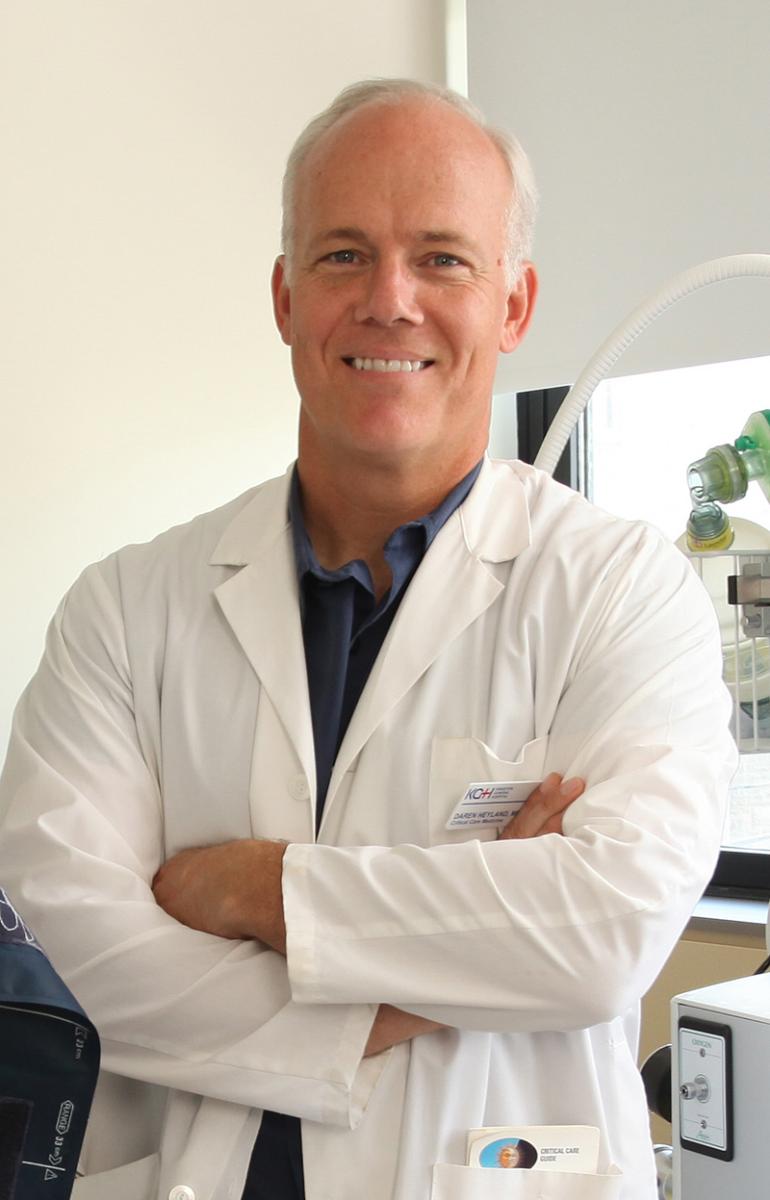Improving the lives of critical care patients
May 17, 2017
Share
For patients who survive an episode of critical illness, they can experience weakness and other limitations to their function long after they’ve left the hospital. But there’s hope in sight: A unique, multi-site clinical trial that aims to improve outcomes for intensive care unit patients using a combination of early nutritional supplementation and exercise. The trial is set to begin, with researchers from Queen’s University playing a leading role in the study’s operations.

The Nutrition and Exercise in Critical Illness (NEXIS) trial will take place in four ICUs across the United States and run through March 2022. Principal investigators are Daren Heyland of Queen’s University, Dale Needham of Johns Hopkins University School of Medicine, and Renee Stapleton of the University of Vermont. The study will examine whether intravenous amino acid supplementation and the in-bed cycling exercise improves recovery for patients requiring life support from a mechanical ventilator in the ICU.
“This collaboration represents one of the first trials of a combined nutrition and exercise strategy in critically ill patients to aid in their recovery,” says Dr. Heyland, who also serves as the director of the Clinical Evaluation Research Unit at the Kingston Health Sciences Centre. “The combination of our respective expertise in nutrition and rehabilitative medicine in critical care settings allows us to bring the best of the two worlds together.”
Patients taking part in the study will receive an intravenous infusion of amino acids in addition to their standard nutrient intake – targeting 2.5 grams of protein per kilogram of body mass per day – and will conduct 45 minutes of cycling exercise five days per week. The study will randomly assign patients into two groups – one will receive the novel combined study intervention, while the other receives standard ICU care. Recovery will be measured using the six-minute walk distance (6WMD) test at hospital discharge as well as many other measures of body composition, muscle strength and physical functioning during patients’ hospital stay. The researchers will conduct phone-based follow-up calls six months after discharge to evaluate lasting benefits of the study intervention.
“ICU patients experience accelerated muscle wasting, believed to be related to the role of the inflammatory response in critical illness,” says Dr. Stapleton, an associate professor of medicine in the division of pulmonary and critical care medicine at the Larner College of Medicine at the University of Vermont. “The consensus is that standard ICU nutrition practice is protein-deficient, typically providing only 0.8-1 gram of protein per kilogram of body weight, and that this may play a part in muscle wasting.”
As one of the world’s leading multicentre clinical research methods centres, the CERU at the Kingston Health Sciences Centre will be responsible for the development of study procedures and day-to-day coordination of the study. Dr. Heyland, who serves as clinical director of CERU says that the centre’s unique level of expertise in coordinating intensive care nutritional studies will strengthen the study’s ability to examine this new course of treatment.
“What has evolved in critical care medicine is a realization that more and more people are experiencing, and surviving, critical illness,” says Dr. Heyland. “We have a large number of survivors of critical illness who, in addition to muscle weakness and impaired physical functioning, can also suffer from such conditions as depression and anxiety, as well as cognitive impairments following release from the intensive care unit. These impairments can have long-lasting health impacts for both the surviving patient and their family members. This study will play an important role in improving the physical outcomes for ICU survivors.”
The research conducted during the NEXIS project is supported by a five-year, $3.5 million grant from the National Heart, Lung, and Blood Institute of the National Institutes of Health.
For more information on the NEXIS trial, please visit the website.